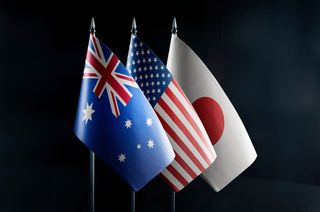Douglas Craig is a Reader in History at the Australian National University. At this research seminar he spoke about "Rethinking America’s Great War".
It has long been a commonplace (more often repeated than explored) that the United States’ experience of the First World War was so different from the rest of the Western world’s that it established a twentieth century version of American exceptionalism that deeply affected not only Americans’ national self-image but also how outsiders saw the United States for the next century.
Scholars such as Jennifer Keene, Doughboys, The Great War and the Remaking of America (2001), Richard Slotkin, Lost Battalions: The Great War and the Crisis of American Nationality (2005), Stephen Ortiz, Beyond the Bonus March and the GI Bill: How Veteran Politics Shaped the New Deal Era (2010) and Lisa Budreau, Bodies of War: World War I and the Politics of Commemoration in America, 1919-1933 (2010), have begun to reassess the impact of the Great War on particular aspects of interwar political culture, but Douglas has in mind a project that focuses more generally on the effect (or non-effect, as the case may be) of the Great War on American political institutions, actors and discourse after 1918.
In a first step to that end Douglas will discuss some of the ways in which the Great War and American exceptionalism have been linked by contemporaries and their historians. He will then draw on aspects of Secretary of War Newton Baker and Secretary of Treasury William McAdoo’s wartime policies to suggest another way of explaining why the United States’ experience of the war should have been so different. Douglas argues that a collective failure in Washington to agree upon the nature of the war – as a European War, as the Great War, or as an American War – not only bedevilled the United States’ war effort but also set in train ambivalences in the wider community over the war’s nature and lessons that contributed to the formation of a very different worldview as Americans looked upon the unfolding of the post-Versailles century.



